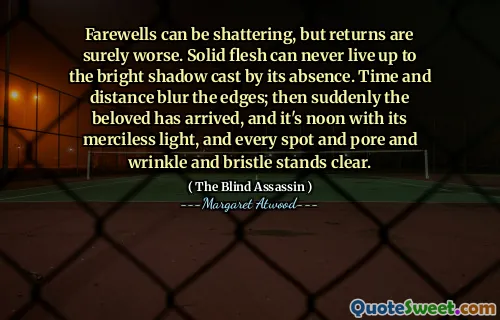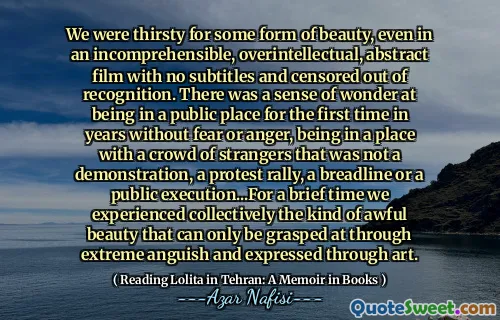...He was wrong about the sadness though: far better to have it when you're young. A sad pretty girl inspires the urge to console, unlike a sad old crone.
In "The Blind Assassin," Margaret Atwood reflects on the nature of sadness and its perception across different ages. The quote notes a distinction between youth and age, suggesting that sadness in a young person evokes empathy and a desire to comfort, while sadness in an older individual may not elicit the same response. This highlights societal attitudes towards youth and beauty, associating them with a kind of innocence and tenderness that can soften the harshness of sadness.
The author's observation reveals deeper truths about human connections and the way we perceive emotions based on appearance and age. A young person's sadness is often romanticized, drawing attention and care from others, whereas an older person's sorrow might be viewed with less compassion. Thus, Atwood provokes thought on how age influences our responses to vulnerability and the shifting dynamics of empathy throughout the human experience.




